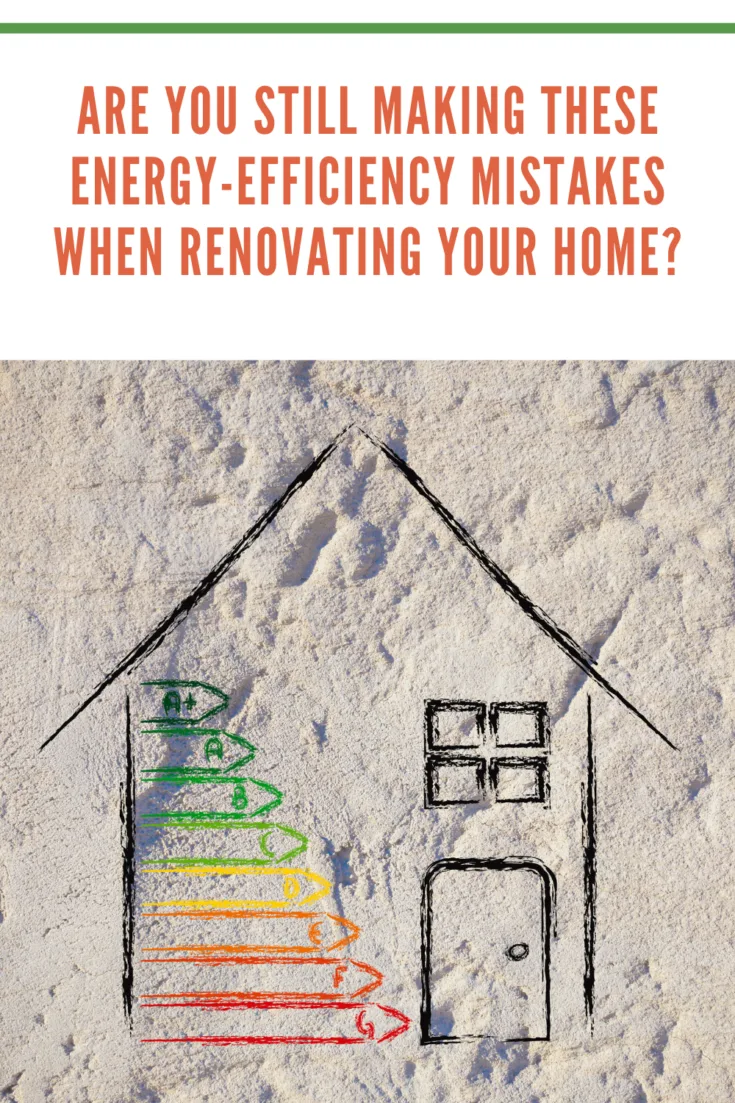Many homeowners are willing to spend thousands of dollars just for home renovation alone. Among the many priorities of homeowners are energy-efficient projects. But it is essential to realize that just because you are investing in seemingly energy-efficient upgrades, you are already optimizing your home’s energy usage.
Homeowners often fall victim to numerous renovation mistakes, especially when making their houses more energy-efficient. Are you also guilty of making the following mistakes?
Starting Your Project Without an Energy Audit
Energy audit exists not only for the sake of owners of ancient buildings. This can be extremely useful if you are unsure what projects are worth taking. With an energy audit, an inspector will check which areas of your home are consuming unnecessary so you will know exactly what projects you should invest in.
During an energy audit, a pro will evaluate different areas of your home, including your:
- Lighting
- Appliances
- HVAC system
- Water heater
- Indoor air quality
- Doors and windows
- Insulation and ductwork
After the audit, the auditor will suggest how you can lower energy costs. This comes in handy before investing in a home renovation. Since you already know what areas are making your home less energy-efficient, you can make timely investments to achieve your goals.
Got no extra funds for a professional energy auditor? Know that many resources online are made available to the public to help homeowners do an energy audit themselves. You can assess your energy costs by following the steps recommended by the U.S. Department of Energy at energy.gov.

Buying Appliances Without Considering Your Requirements
Replacing high-energy appliances is a good way to make your home a more energy-efficient one. But then, it is not enough that you are investing in more energy-efficient versions of your old appliances. You also need to consider your home’s requirements before making any investment.
Let’s say it is now time to say goodbye to your old air conditioners. Before you start looking for new ACs, you should consider the areas where you will be placing the new units. There is also a need to check which areas are well-insulated.
You don’t want to end up buying an AC with a high horsepower when you only have a small space to place the unit. You must match the size of your room with your new AC’s HP. It will also help if you hire the pros to install your air conditioning to ensure it operates the way it should.
Pursuing a Renovation without Prioritizing Your Projects
When it comes to renovating your home, you want to make sure you are prioritizing specific projects. This is especially true if you cannot maintain the condition of your home. The last thing you want is to finish one renovation project only to find out that you should have prioritized your remaining projects first.
Let’s say you plan on investing in solar panels to reduce your energy consumption. You have everything ready and found a local company to buy the solar panels from. But if you don’t check the condition of your roof first or did not inform your landlord about your plans to have solar panels installed, you can end up putting your investment to waste, suggests investopedia.com.
It helps to list down all the projects you want to tackle and see which projects will interlap with one another. As much as possible, renovate one room at a time. It also helps you meticulously plan the renovation to avoid wasting money and unnecessary additional purchases.
Not Knowing Your Financial Options
Many people would save enough money before doing a home renovation. Others would use their credit cards to pay for certain projects. Some homeowners would tap on their home equity to finance energy-efficient home improvements, points out scientificamerican.com.
But what you should not take for granted is checking if you can get financial aid when pursuing certain projects. Know that the government offers financial assistance to homeowners planning to make energy-efficient renovations. Doing your online research and checking with your local municipality on what energy-efficient upgrades you can get financial aid for can help you pay for your projects.
There are state, local, and federal incentives, savings programs as well as rebates that can help offset your energy-efficient upgrades. You can enjoy energy-efficient financing even when selling, buying, or refinancing your home. You need to check if you qualify to leverage these government financial assistance programs.
Making your home more energy-efficient is an excellent way to embrace sustainability. You get to improve your home’s environmental impact while increasing your energy savings. But you must try to do this the right way. Avoid the mistakes listed above, and you can make the most out of your energy-efficient efforts.
____
Resources:
https://www.presidentialheatandair.com/air-conditioning/installation/
